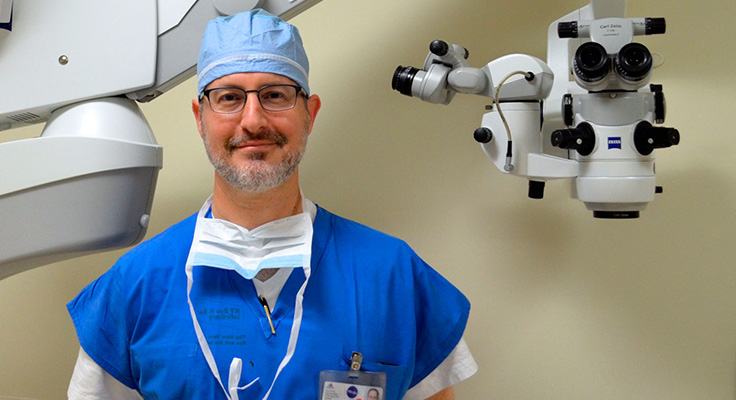

Natural Tissue Perforator Flap Reconstruction: A Safer Option
Breast reconstruction after mastectomy can be performed using breast implants or natural tissue. While breast implants have been a popular choice for many years, there is growing concern about their safety. In recent years, natural tissue perforator flap reconstruction has emerged as a safer alternative to implant reconstruction. This procedure uses tissue from the patient’s own body, eliminating the risk of implant-related complications.
Here are 5 symptoms of breast implant illness to look out for and understand:
5 Symptoms of Breast Implant Illness:
Breast Implant Illness Symptoms:
Foreign Objects In The Body
The exact mechanism by which silicone implants may trigger an autoimmune response is not fully understood, but several theories have been proposed. One theory is that silicone particles may leak from the implant and trigger an immune response in some individuals. Silicone is a foreign substance that is not naturally present in the body, so when it enters the body, the immune system may perceive it as a threat and mount an immune response.
Silicone particles may also interact with immune cells, leading to the release of pro-inflammatory cytokines and other immune molecules. This can result in chronic inflammation and tissue damage, which may contribute to the development of autoimmune disorders.
Overall, the exact mechanisms by which silicone breast implants may trigger an autoimmune response are still being studied.
Breast Implant Illness Symptoms:
Fatigue
In the case of fatigue, research has shown that breast implants can trigger an immune response in some women, leading to chronic inflammation in the body. Chronic inflammation can lead to the release of pro-inflammatory cytokines, which can cause fatigue and other symptoms. Cytokines are proteins that are produced by cells of the immune system in response to infection, injury, or other stimuli. Pro-inflammatory cytokines, in particular, promote inflammation and can cause a range of symptoms, including fatigue.
Breast implants are considered foreign objects by the body, and when they are inserted, the immune system may respond by activating immune cells called macrophages. Macrophages are responsible for identifying and removing foreign objects and are found around the breast implants.
When macrophages come into contact with breast implants, they may release pro-inflammatory cytokines such as interleukin-6 (IL-6) and tumor necrosis factor-alpha (TNF-α). These cytokines can trigger an inflammatory response in the surrounding tissues and can lead to the recruitment of other immune cells, further exacerbating the immune response.
Over time, this chronic inflammation can lead to tissue damage and can cause a range of symptoms, including fatigue, joint pain, and skin rashes.
Breast Implant Illness Symptoms:
Hair Loss
In the case of hair loss, chronic inflammation triggered by the immune system may contribute to the development of this symptom. When the immune system is activated, it can release pro-inflammatory cytokines that can promote inflammation and damage to tissues throughout the body, including the hair follicles.
The hair follicles are highly sensitive to inflammation, and chronic inflammation can cause damage to the hair follicles, leading to hair loss. In addition, chronic inflammation can disrupt the normal hair growth cycle, leading to an increased rate of hair shedding.
Furthermore, hair loss can be a side effect of stress and fatigue, which are common symptoms of BII. When the body is under stress or fatigued, it can divert resources away from non-essential functions, such as hair growth, and prioritize essential functions, such as immune function and energy production.
Breast Implant Illness Symptoms:
Skin Rashes
The exact mechanism by which silicone implants may trigger skin rashes is not fully understood, but several theories have been proposed. One theory is that silicone particles may leak from the implant and cause an allergic reaction in some individuals. Silicone is a foreign substance that is not naturally present in the body, so when it enters the body, the immune system may perceive it as a threat and mount an immune response.
In some cases, this immune response may manifest as a skin rash. The rash may appear as a red, itchy, or scaly patch of skin, and may be accompanied by other symptoms such as swelling, blistering, or hives.
Another theory is that silicone may interact with other substances in the body to trigger an immune response that leads to skin rashes. For example, some researchers have suggested that silicone may interact with the gut microbiome to trigger an immune response that affects the skin.
Breast Implant Illness Symptoms:
Brain Fog
The exact cause of brain fog in BII is not fully understood, but several mechanisms have been proposed. One theory is that breast implants may trigger an immune response that leads to chronic inflammation throughout the body, including the brain. This chronic inflammation may lead to oxidative stress and damage to the neurons in the brain, which can impair cognitive function.
Additionally, breast implants may also release silicone or other chemicals into the body, which can interact with the central nervous system and affect brain function. Some women with breast implants have reported elevated levels of heavy metals in their blood, which can also impair cognitive function.
Another proposed mechanism for brain fog in BII is related to hormonal imbalances. Breast implants may affect the endocrine system, which can lead to changes in hormone levels, particularly estrogen and progesterone. These hormonal imbalances can affect cognitive function and lead to brain fog.
Natural Tissue Perforator Flap Reconstruction: A Safer Option
If you have undergone breast implant reconstruction and are experiencing symptoms of breast implant illness, it is important to know that you are not alone. Many women have reported similar symptoms, and it is essential to prioritize your health and wellbeing. The decision to undergo corrective reconstructive surgery using natural tissue perforator flap reconstruction is a personal one, but it is worth considering as an alternative to breast implants.
Perforator flap natural tissue reconstruction uses a woman’s own tissue to create a new breast mound. This method does not involve the use of implants and reduces the risk of breast implant-related complications. Moreover, it eliminates the potential for breast implant illness, which can significantly improve your quality of life. While this option may involve more complex surgery and a longer recovery time than implant reconstruction, it can ultimately offer better outcomes and greater peace of mind.
In conclusion, if you are experiencing symptoms of breast implant illness, it is important to seek medical attention and discuss your options with a qualified surgeon. Natural tissue perforator flap reconstruction is a viable alternative to breast implant reconstruction and can help alleviate symptoms while providing long-lasting, natural-looking results. By prioritizing your health and considering all of your options, you can make an informed decision that is best for you and your wellbeing.
Meet Dr. Joshua L. Levine
World-Renowned Natural Tissue Breast Reconstruction Surgeon
Dr. Joshua Levine is a world-renowned perforator flap breast reconstruction surgeon. Meaning, all of his breast reconstruction procedures, are muscle-sparing, using only your own natural tissue to restore your breast(s).
With his advanced techniques, such as stacked combination flaps, or utilizing the delay phenomenon in staged-immediate reconstruction, all women, no matter how thin and no matter what body type, are candidates for natural tissue, muscle-sparing, implant-free breast reconstruction.
As Seen On: US News & World Report, sharecare.com, diepflap.com


